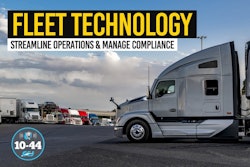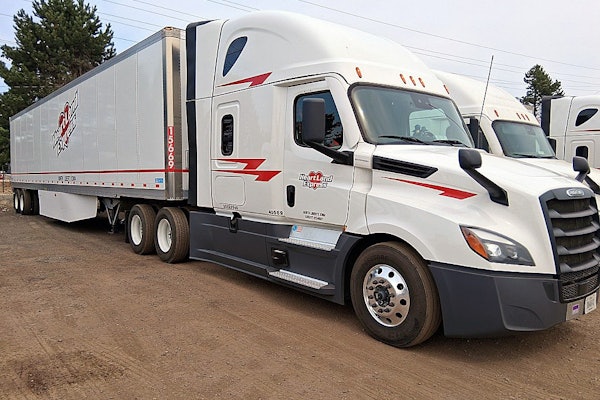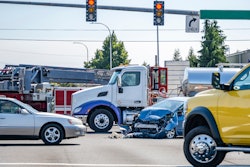Trucking news and briefs for Monday, Dec. 30, 2024:
Transportation Security Screening Modernization Act now law
President Joe Biden last week signed The Transportation Security Screening Modernization Act, "a bipartisan victory for common sense," according to ATA President & CEO Chris Spear, whose organization has championed the bill that bill that allows workers to apply existing valid background checks to multiple credentialing programs managed by the Transportation Security Administration, such as the Transportation Worker Identification Credential (TWIC) and Hazardous Materials Endorsement (HME) programs.
The Transportation Security Screening Modernization Act has received bipartisan support in both chambers of Congress. Introduced by Sens. Roger Wicker (R-Mississippi), Jon Tester (D-Montana), Deb Fischer (R-Nebraska) and Angus King (I-Maine), the bill received bipartisan support in both chambers of Congress.
Many supply chain roles often require multiple security credentials, specifically TWICHazMat Endorsement, and even though these credentials require the same background checks, individuals must undergo the same background check multiple times, pay duplicative fees, and endure wait times to obtain the documentation, noted Alexandra Rosen, ATA's vice president of legislative affairs.
“For far too long, the truck drivers who keep our country running have been subjected to an outdated, inefficient credentialing system that does not respect their time and money," Spear added. "By taking the final step needed to eliminate unnecessary bureaucratic hurdles, Congress will provide essential supply chain workers with overdue relief from redundant background checks and fees."
By eliminating duplicative screenings and harmonizing these programs, the bill would codify formal recommendations by the Government Accountability Office dating back to 2007. These recommendations were reaffirmed in 2020 in a comprehensive security assessment conducted by the Homeland Security Operational Analysis Center. The bill does not make any modifications to the backend security threat assessment conducted on individual applicants, ensuring that they undergo the same level of review as they do under current law.
Truck Tonnage Index Contracted 1.9% in November
Trucking activity dropped in November, according to the American Trucking Associations (ATA) reported this week through its advanced seasonally adjusted For-Hire Truck Tonnage Index, just the second decrease since July.
“The frustratingly choppy freight environment continued in November,” says ATA Chief Economist Bob Costello. “Since hitting a low in January of this year, tonnage is up a total of 1.1%, but the path has been fraught with nice gains one month only to come back down the next. The good news is that the overall trend this year is up, albeit at a slow rate.”
In November, the ATA advanced seasonally adjusted For-Hire Truck Tonnage Index equaled 112.5 compared with 114.6 in October. The index, which is based on 2015 as 100, was down 1% from the same month last year. The not seasonally adjusted index, which calculates raw changes in tonnage hauled, equaled 109.6 in November, 9.6% below October.
ATA says the seasonally adjusted decrease follows a sequential 1.2% gain in October, which was unchanged from the November 19 press release.
FMCSA denies autonomous trucking companies' warning device exemption request
The Federal Motor Carrier Safety Administration on Friday denied a request filed by Waymo and Aurora, two autonomous trucking tech companies, seeking an exemption on the placement of warning devices for a truck stopped on the roadside.
Current regulations require “whenever a commercial motor vehicle is stopped upon the traveled portion of the shoulder of a highway for any cause other than necessary traffic stops, the driver shall" put down warning devices (generally reflective triangles) on the traffic side facing approaching traffic, another one 100 feet back in the lane or shoulder, and another one 100 feet away facing away from oncoming traffic.
The autonomous trucking companies requested that they and other similarly situated companies be permitted to instead use "Cab-Mounted Warning Beacons" when the CMV is operated by a Level 4 Automated Driving System (ADS), either without a human on board or with a human on board when testing the warning beacons.













